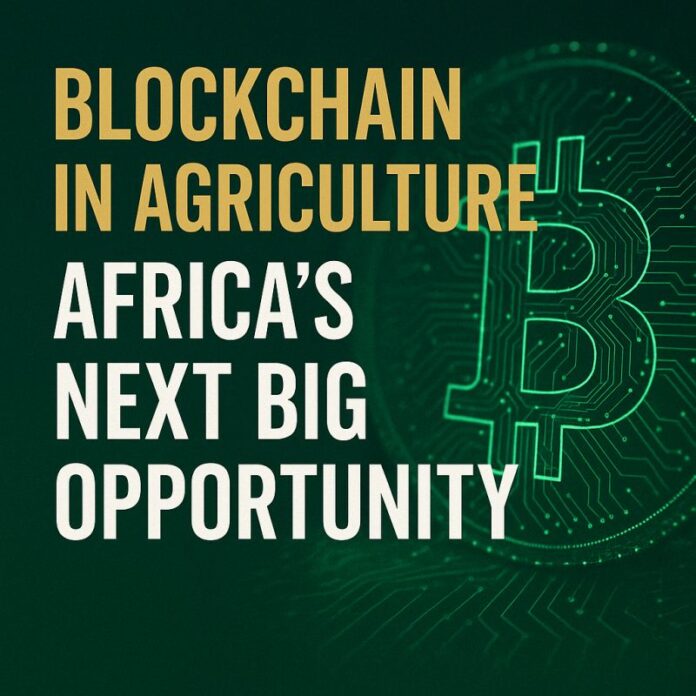Every day, our digital feeds are flooded with discussions about AI, fintech, and crypto. But let’s shift our focus to the real game-changer that isn’t yet receiving the full attention it deserves: blockchain technology in agriculture. This isn’t just for crypto enthusiasts; we’re talking about an end-to-end transformation of our food systems, from the very soil of the farm to the plate on your table, and every critical step in between.
The Uncomfortable Truth: Booming Exports, Broken Rewards
Consider this stark reality: I recently had a conversation with a group of seasoned traders and agribusiness investors over a cup of rich Ugandan Robusta coffee. What should have been a moment of collective pride quickly turned uncomfortable. One trader casually admitted, “Whenever global giants announce oversupply from Brazil or Vietnam, we know futures prices will crash… but we cash in on the panic.”
Meanwhile, back home, the very smallholder farmers who painstakingly cultivate those beans earn next to nothing. This happens despite Uganda’s coffee exports hitting a staggering $1.14 BILLION, marking the highest value in 30 years. In 2023/24, Uganda exported 6.13 million bags, with volumes up 6.3% and value up 35%. Yet, the farmers doing the hardest work remain stuck with persistently low farm-gate prices.
This isn’t merely a consequence of market forces. This is a glaring structural imbalance. We’ve seen it far too many times: power concentrated in commodity cartels, and narratives controlled by futures traders. African producers, especially smallholders, are left with merely crumbs from a feast they helped create.
Blockchain: Unlocking Billions in Trapped Value
Here’s where the excitement truly begins: blockchain isn’t just about digital money. It’s the robust infrastructure that can unlock billions in trapped value across Africa’s agri-food value chain. Imagine a future where:
- Smallholder farmers finally gain transparent access to global markets.
- Input suppliers can track and verify the integrity of their products, ensuring quality.
- Processors can monitor and validate quality and sustainability claims with undeniable proof.
- Exporters and retailers can offer customers bulletproof traceability, building trust and commanding premium prices.
- Financiers and insurers can de-risk loans with verifiable farm data, making capital more accessible to producers.
The beauty of this is that you don’t have to wait for “big tech” or governments to initiate change. Any serious agribusiness can develop its own blockchain-powered product. That’s precisely why I’m building BCT (Blockchain Cultivation Tracker). Currently in development, BCT is designed to be a reliable, affordable, farmer-first tool that helps track cultivation practices, yields, and market access. It’s all about accountability, fostering market trust, and giving African farmers a powerful voice on global tables.
The Wide Open Field: An Opportunity for African Ownership
The truth is, the field is wide open. Africa’s agricultural sector is desperately craving new products, innovative solutions, and serious entrepreneurs willing to roll up their sleeves and build something truly meaningful. We simply cannot afford to continue exporting raw produce while others capture the lion’s share of profits through processing and technology. It’s time for African brands, African tech, and African ownership to dominate across the entire food system.
If you’ve been contemplating where to make a significant impact, this is it. The next generation of agricultural wealth will be built by those who boldly embrace traceability, transparency, and value addition—all powered by blockchain.
Are you content watching from the sidelines, or are you ready to get on the field and shape Africa’s agricultural future?
Credits: Ikenna Unachukwu


